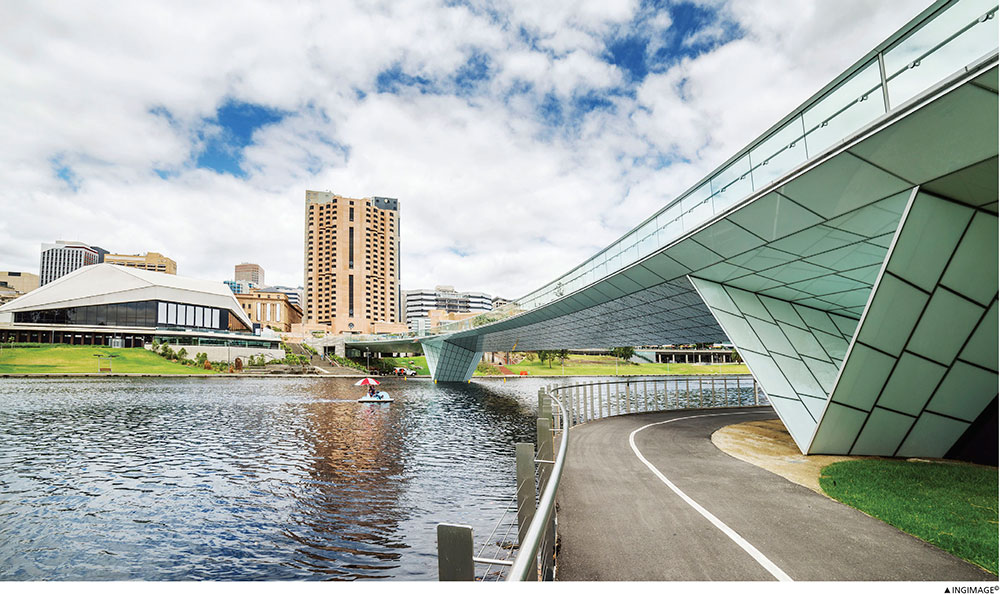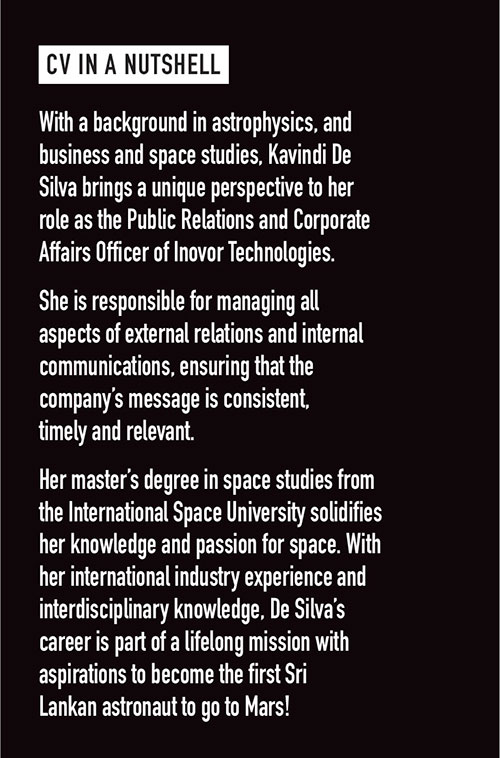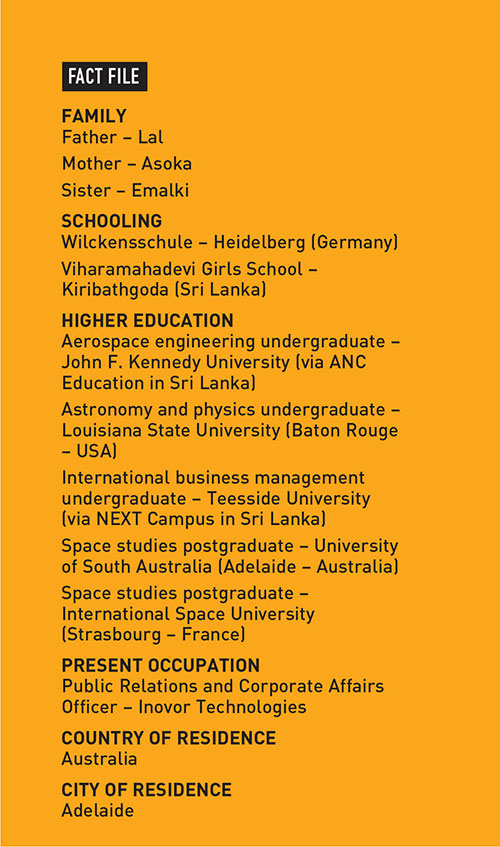Kavindi De Silva
Chasing cosmic dreams

Q: What inspired you to pursue a career in the space industry?
A: My passion for space ignited at the age of seven when I stumbled upon a photograph in a science magazine of an astronaut’s first ever spacewalk.
I didn’t have an understanding of what that meant, nor any idea how to carve a path towards space. Yet, that image sparked a curiosity and determination within me, setting my dream in motion – to one day reach space myself.
So I began creating opportunities for myself and others, encouraging space exploration as a hobby, field of study and career path.
Connecting with like-minded individuals, meeting legendary astronauts Buzz Aldrin, Yi So-yeon and Jessica Meir, and learning from industry experts, have guided me on this journey to space.
To this day, I have that page from the magazine with the astronaut’s image that inspired me!
Q: And what challenges did you face in accessing education and opportunities in space science as a Sri Lankan?
A: One of my biggest challenges was presenting my dream in a way that others would believe in and support – especially as a girl pushing against deeply ingrained societal and cultural norms.
From starting the astronomy society at my school to organising stargazing camps, competing internationally and moving overseas to study astrophysics, everything seemed impossible – until I did it!
I always believed that someone had to take the harder path, so it would be easier for those who came afterwards. Now, 15 years later, opportunities for the younger generation to engage in space are exponentially better.
But there’s still room for improvement, and that’s where people like me can step in and make a difference.
Q: In your opinion, what gaps exist in Sri Lanka’s education system when it comes to subjects such as astrophysics and space exploration?
A: Many students are unaware of career opportunities in astrophysics, space technology and exploration. There is a lack of research facilities and training programmes, and very few undergraduate or postgraduate programmes in these fields in Sri Lanka. As a result, students often have to pursue education abroad.
To bridge this gap, the government and private sector could launch a national space programme alongside a public outreach effort with the aim of creating a future space ecosystem in Sri Lanka.
Q: What excites you the most about the future of space exploration?
A: It’s not just about me going to space; it’s about taking others along. I want to inspire and educate people about the possibilities beyond Earth.
The prospect of reaching Mars and transforming it into a habitable world excites me the most. Achieving this will require immense scientific knowledge, advanced technology and resources but we are closer than ever.
Companies already have concrete plans in place with some having selected future crew members and begun offering training opportunities. We have the potential to take what we’ve built on Earth and extend it to another planet.
The prospect of reaching Mars and transforming it into a habitable world excites me the most

Q: Why is terraforming Mars important – and how do you see yourself contributing to this effort?
A: Transforming the Martian environment to make it habitable for humans is a crucial step towards becoming an interplanetary species. Mars has water, carbon dioxide and minerals that could support life – and with the increased risk of climate change on Earth, establishing a self-sustaining colony on Mars is not a bad idea.
Terraforming would also drive innovation in robotics, bioengineering and atmospheric science, thereby benefiting Planet Earth as well.
It has been my lifelong dream to become an astronaut and I’m determined to be among the group that will make the Mars dream a reality. The first Sri Lankan astronaut – it has a nice ring to it!
Q: What advice would you offer young Sri Lankans – especially women – who want to pursue careers in space industry and related fields?
A: Go for it! Start by building a strong foundation in science, technology, engineering and mathematics (STEM) subjects. Get involved in robotics, coding or astronomy clubs, and seek online courses and global competitions to attend and expand your network.
Don’t be discouraged with the lack of support from teachers, friends or even family. Look for mentors, scholarships and internships to gain experience. Most importantly, believe in yourself.
At a very young age, I understood that the bigger the dream, the more courage and resilience you build along the way. So dream big – and dream out loud.


